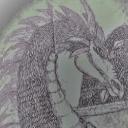Yahoo Clever wird am 4. Mai 2021 (Eastern Time, Zeitzone US-Ostküste) eingestellt. Ab dem 20. April 2021 (Eastern Time) ist die Website von Yahoo Clever nur noch im reinen Lesemodus verfügbar. Andere Yahoo Produkte oder Dienste oder Ihr Yahoo Account sind von diesen Änderungen nicht betroffen. Auf dieser Hilfeseite finden Sie weitere Informationen zur Einstellung von Yahoo Clever und dazu, wie Sie Ihre Daten herunterladen.
The sense of wonder, where religion and science meet?
No, I don't mean the Rachel Carson book.
I'm referring to the feeling I (and perhaps you) get when I listen to some really profound statement about science. Carl Sagan and Richard Feynman were especially good at these kinds of statements. For those of you who don't know what I'm talking about, watch this:
http://www.youtube.com/watch?v=myPSkL_S45E
I am not religious, but my question is for religious and non-religious, for scientists and non-scientists:
Do you think that the feelings I described are the same as those felt by religious people when praying to or contemplating their respective deities, or when listening to religious texts being spoken or sung? It seems to me that there is much in common; that the same brain functions are used in each of these experiences. In other words, might not they be the same experience, but in different contexts?
What are your thoughts?
I have asked this question in both the Religion and Science sections, to get a broader perspective.
5 Antworten
- vor 1 JahrzehntBeste Antwort
If you mean does the sensation from believing you've discovered a profound or wondrous truth that can explain many mysteries, come from the same emotional receptor of the brain and cause an odd sense of euphoria, whether the answer came from science or religion??
I think it may be possible.
The human mind seems to thirst for knowledge and it is completely satisfied once it believes it has finally found the answer it's been looking for.
It may also explain why the mind is unwilling to expand on or reject the truths it believed it discovered, be it from religion or science or tradition.
- AndrewGLv 7vor 1 Jahrzehnt
Personally, I can never understand the 'conflict' between religion and science. Science is based on prediction and testing; religion is based on faith. There is no conflict between the two; except that the controversy has been exacerbated by religious fundamentalists on one side and science reactionaries on the other.
The Bible (and the Koran, for that matter) are not scientific literature; nor should they be. The wonder of the universe is something to be celebrated; whether through science or religion, or both.
- hinksonLv 4vor 5 Jahren
The private and maximum elemental questions are of the metaphysical variety, no count if we ask those questions spiritually or scientifically. the two approaches handle the essence of what it potential to be human. On a factor notice, most of the brightest minds the worldwide has conceived have had a non secular perspective in uncomplicated: Deism. the place does technology and faith meet? I recommend Deism, the place technology is faith and faith is technology. checklist of Deists: Albert Einstein Socrates Aristotle David Hume Benjamin Franklin Abraham Lincoln Mark Twain etc.
- SullivanLv 7vor 1 Jahrzehnt
The conflict is that the more science we understand, the less room there seems to be for god to have done anything.
This upsets the religious people a lot.
Quelle(n): http://www.youtube.com/watch?v=MnFMrNdj1yY - Wie finden Sie die Antworten? Melden Sie sich an, um über die Antwort abzustimmen.





